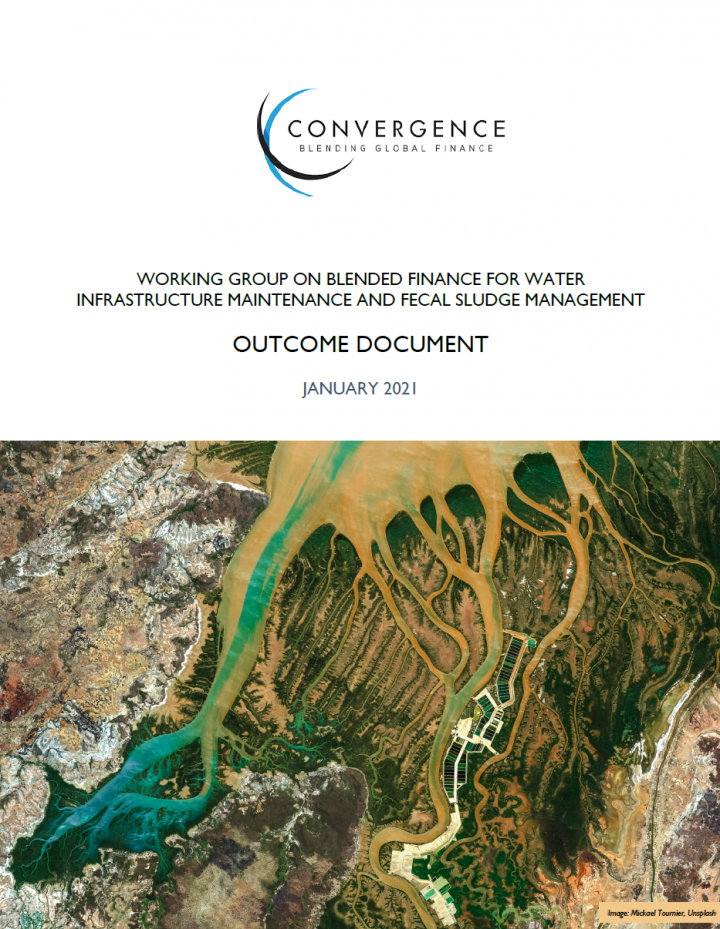Working Group on Blended Finance For Water Infrastructure Maintenance And Fecal Sludge Management Outcome Document Convergence © (2021)
Over the course of three months, a Working Group comprised of over 50 organizations explored the use of blended finance in two important segments of water service delivery and sanitation: (1) repair and maintenance of water infrastructure in less densely populated areas; and (2) fecal sludge management. Commissioned by the Swedish International Development Cooperation Agency (Sida), this Outcome Document highlights the Working Group's recommendations.
Currently, there is greater demand for (and hence a greater prevalence of) blended solutions with design and preparation-stage grants, Technical Assistance, and results-based financing. As business models mature and the enabling environment for water and sanitation services improves, more solutions that make use of guarantees and concessional debt or equity within a blended capital stack will emerge.
For fecal sludge management and water infrastructure maintenance (and many other water and sanitation services), public funding, whether through taxes or transfers, will remain critical. But attracting private capital to investable transactions will allow traditional development aid and government funds to refocus on projects and enterprises that should not or cannot attract private capital.
Bibliographic information
Convergence © (2021). Working Group on Blended Finance For Water Infrastructure Maintenance And Fecal Sludge Management Outcome Document Convergence © Toronto, Canada.
Filter / Tags
Faecal sludge treatment processesFaeces or faecal sludgePoliticians and local decision makersPractitionersEnglish
External links
Downloads
Blended Finance for Water Infrastructure Maintenance and Fecal Sludge Management
Type: application/pdf
Size: 4.79 MB

